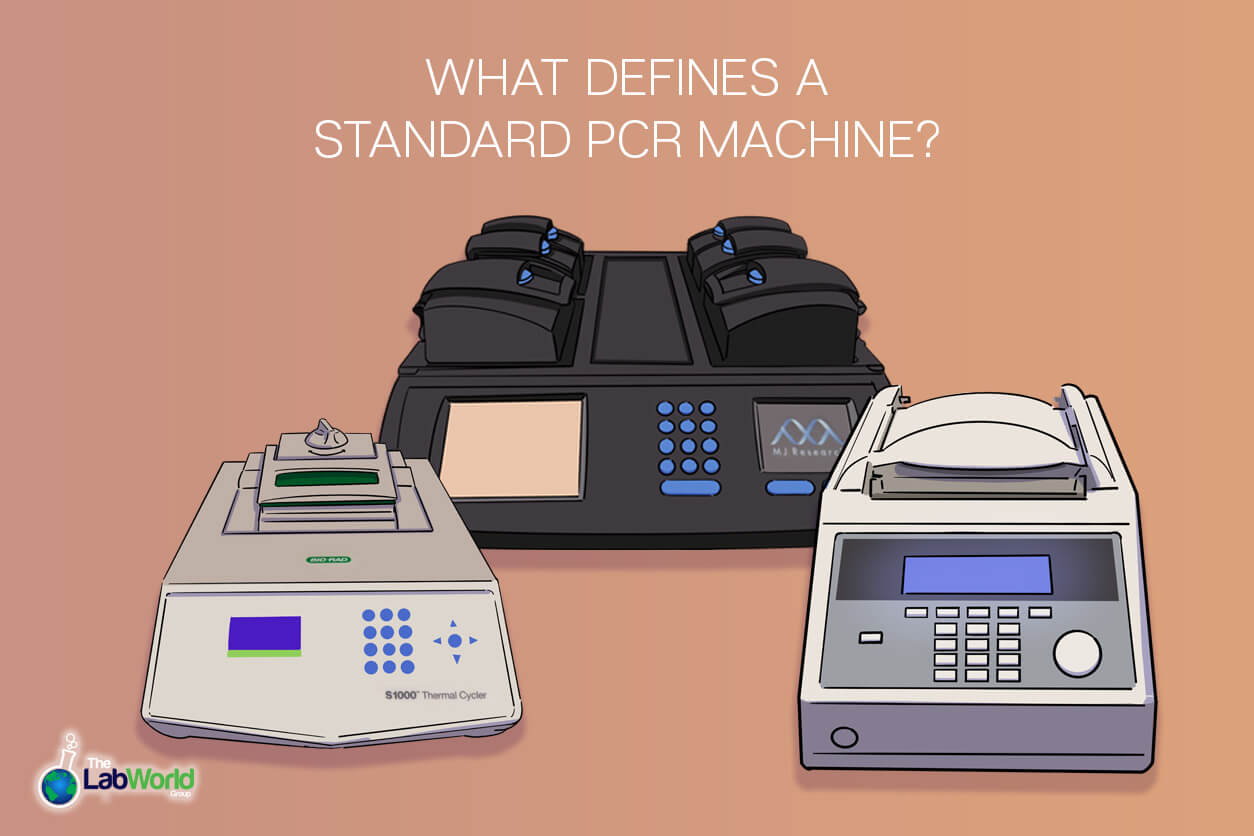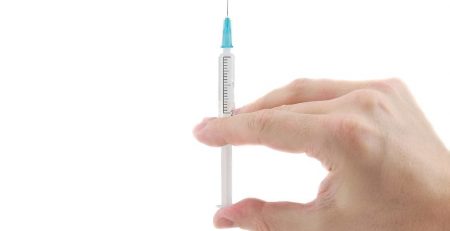
All About Standard PCRs
Amanda2022-08-26T13:14:28+00:00What is a standard PCR?
Standard PCRs are the workhorses of the lab. Through polymerase chain reaction (PCR) they clone the segments of DNA and come in a broad range of capacities, configurations, and features. A standard PCR, no matter the maker, has a swappable heating block constructed with a conductive metal and the number of wells within can vary.
They can be either just one block or feature multiple blocks, be slower or faster, utilize deep wells, or be the standard everyday size. They can also be uniformly heated or have a gradient option. Here we will get into the details of the thermal cyclers and the flexibility they can provide.
Types of PCR Heating Blocks
The three most common thermal cycler block choices are made of silver, gold, and aluminum. All three have excellent conductivity and will heat and cool uniformly. Fast doesn’t always mean the best, some times slower with more control is optimal. Below we ordered the heads from fastest to slowest heat conductivity.
Silver blocks are the most conducive at 429 Watts per Meter-Kelvin. A silver block will require less electricity to reach temperature, generate less waste heat in the process, and achieve block uniformity faster.
Gold is the second fastest at 315 W/m•K. Gold won’t oxidize and tarnish over time as silver will, making this a great choice with longevity in mind. The upfront cost however is a consideration.
Aluminum is the least conducive of the 3, but still reasonable at 247 W/m•K). Although not as fast as its counterparts, it is uniform and is a cheaper alternative bridging the gap between performance and cost.
When it comes to selecting your PCR Block material, the important things to keep in keep in mind are how fast a reaction will you actually need, and what your budget is. If frequent usage and quick turnaround are ideal, then you may want to consider investing in the costlier option. All three materials are practical and reliable choices and are the standard in the thermal cycler industry.
PCR Heating Block: Single vs Multiple, what’s right for you?
Most of the thermal cyclers you will find on the market are single PCR blocks. These are the standard choice because they’re compact, highly portable, and generally simpler to use with flexible configuration options.
Some single blocked PCR units have the versatility to be dairy-chained together with a controlling thermal cycler or controlling software. This allows a lab to quickly scale up to higher throughput and speed up processes in the lab. This solution also keeps things flexible allowing users to break down the individual units when not needed. An example of this on the market today is the Eppendorf Mastercycler series.
Multiple block head systems like the Biorad dyad with 2 seats or the MJ Research tetrad with 4 heads significantly up a lab’s throughput in one unit. This is an excellent choice when you have a well-practiced method and require lots of molecular copies. When using a system with more heads this will translate to a larger power footprint. Most laboratories can accommodate this requirement but please keep this in mind when purchasing your thermal cycler.
PCR Block Well Count and Volume
The most common microplate well number amongst thermal cyclers are 96 or 384 wells. These microplates are easy to pipette by hand with a 8 or 12 multichannel pippet, or are compatible with a robot system. There are additional off sizes like 6, 12, 24, 48, 1536 or 3456 microplate wells. The 0.2-mL is the most common tube well size, less common but still prevalent are the small 0.1 ml well or larger 0.5ml blockheads. Microplates can also be either standard height or deep well. When considering your thermal cyclers you should check to make sure the unit will accommodate a deep well plate if that’s part of assay needs.
Regular vs Fast PCR
Run times can differ slightly from model to model however a standard thermal cycler generally completes a run in about 120 minutes or 2 hours. This roughly translates to a maximum amount of 4 runs for an average 8-hour workday on a single PCR system.
A “fast” thermal cycler, like the Thermo ABI 7500 Fast PCR, is 3 times faster completing a run in about 40 minutes. This ups the total amount of runs per day to about 12. A Fast system will have a higher temperature ramp rate and shorten the denaturation and annealing/polymerization times.
This factor should be considered when determining how much throughput you need and expanding your choices with multiple block head units or larger connected systems.
Gradient PCR
A gradient option allows a range of temperatures across the block. Gradient capable systems such as the Eppendorf Mastercycler Nexus can evaluate up to 12 different temperatures according to their row in one single run. This is useful for optimizing a PCR protocol or conditions such as primer annealing temperatures.
Summary
A Standard thermal Cycler PCR machine is irreplaceable in the lab. Make sure you know and understand the different options you have available to you when purchasing this piece of equipment. Every thermal cycler we receive is put through the same rigorous testing and inspection.
We check for integrity, temperature, uniformity, and that they’re operating within the manufacturer’s performance standards. We work with our customers to find the right fit, and level of security to meet their needs and budget. Buying a verified gently used PCR system is a great way to get more features and throughput without blowing the budget. Connect with us today and let us help you find the right Thermocycler for your lab!











